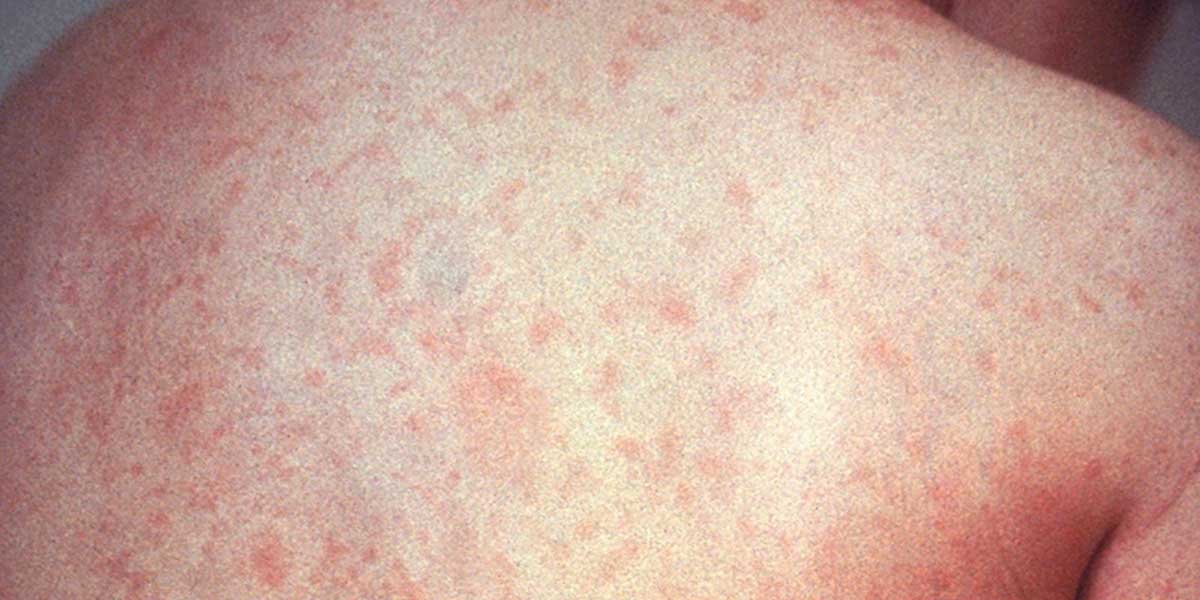An estimated 10.3 million measles cases were reported worldwide in 2023, marking a 20% increase from 2022, according to the World Health Organization (WHO) and the U.S. Centers for Disease Control and Prevention (CDC).
The rise in cases is attributed to inadequate global immunization coverage.
Measles is preventable with two doses of the measles vaccine, yet more than 22 million children missed their first dose in 2023.
Globally, 83% of children received their first measles vaccine dose last year, but only 74% received the recommended second dose.
To prevent outbreaks and protect populations, countries need vaccination coverage of 95% or higher for both doses of the measles vaccine.
“Measles vaccine has saved more lives than any other vaccine in the past 50 years,” WHO Director-General Dr. Tedros Adhanom Ghebreyesus said.
“To save even more lives and stop this deadly virus from harming the most vulnerable, we must invest in immunization for every person, no matter where they live,” he added.
CDC Director Mandy Cohen emphasized the urgency of vaccination efforts.
“The number of measles infections is rising around the globe, endangering lives and health,” Cohen said.
“The measles vaccine is our best protection against the virus, and we must continue to invest in efforts to increase access,” she said.
Global gaps in vaccination coverage resulted in large or disruptive outbreaks in 57 countries in 2023.
This represents a nearly 60% increase from the 36 countries that experienced major outbreaks in 2022.
The African, Eastern Mediterranean, European, South-East Asia, and Western Pacific regions saw significant increases in measles cases.
Nearly half of all large outbreaks occurred in the African region.
Unacceptable Death Toll Despite Progress
Despite the surge in cases, the number of measles-related deaths in 2023 dropped by 8% compared to the previous year.
An estimated 107,500 people, mostly children under age 5, died from measles in 2023.
The slight reduction in deaths was attributed to better nutritional status and improved health services in affected regions.
Measles survivors often face lifelong complications, including blindness, pneumonia, and encephalitis, which causes brain swelling and potential brain damage.
Infants and young children remain at the highest risk for severe complications.
The rise in cases and outbreaks puts the global measles elimination goal, outlined in the Immunization Agenda 2030, at risk.
By the end of 2023, 82 countries had achieved or maintained measles elimination.
This week, Brazil was reverified as measles-free, making the WHO Americas Region free of endemic measles once again.
At least one country in every WHO region, except the African Region, has achieved measles elimination.
Urgent Actions Needed to Protect Children
Targeted efforts are urgently needed, especially in the African and Eastern Mediterranean regions, as well as in conflict-affected and vulnerable areas.
Countries must ensure that all children receive two doses of the measles vaccine through high-performing routine immunization programs.
High-quality vaccination campaigns are essential in areas where routine programs fall short.
Strengthening disease surveillance is also critical to improving immunization efforts and responding rapidly to outbreaks.
The Global Measles Rubella Laboratory Network (GMRLN) plays a vital role in detecting and mitigating the impact of outbreaks.
Global immunization partners and governments must collaborate to maintain progress toward measles elimination and protect children worldwide.


















